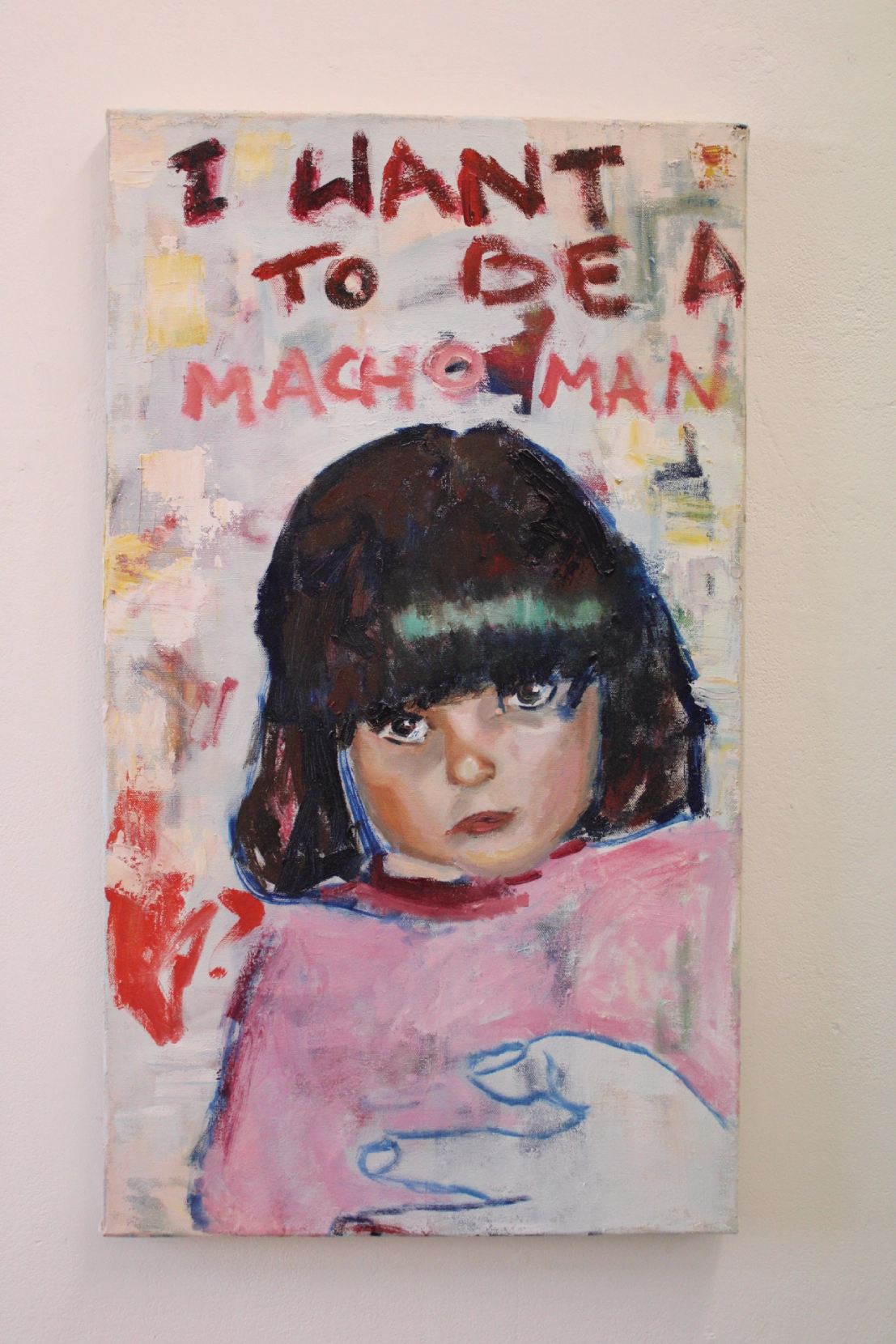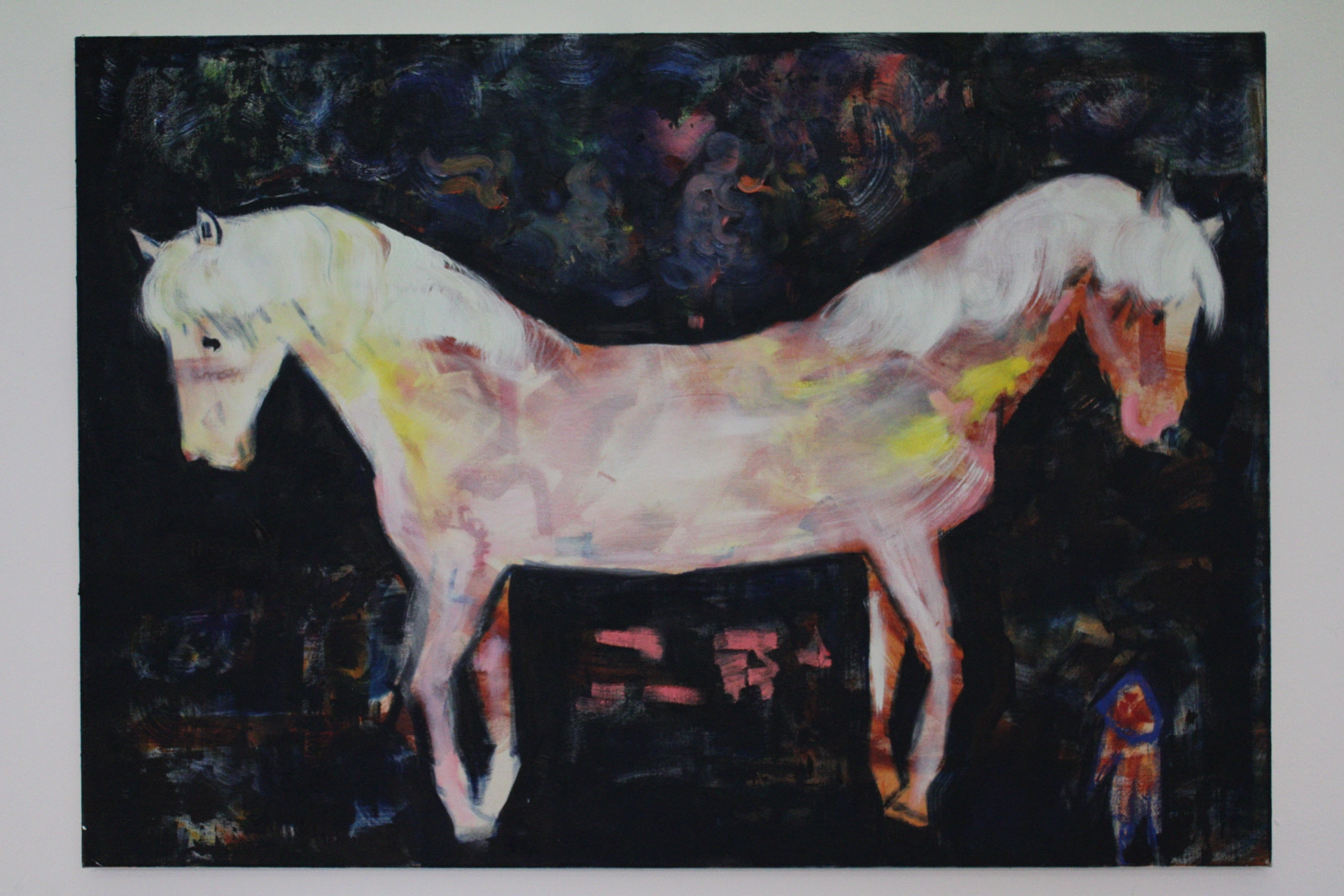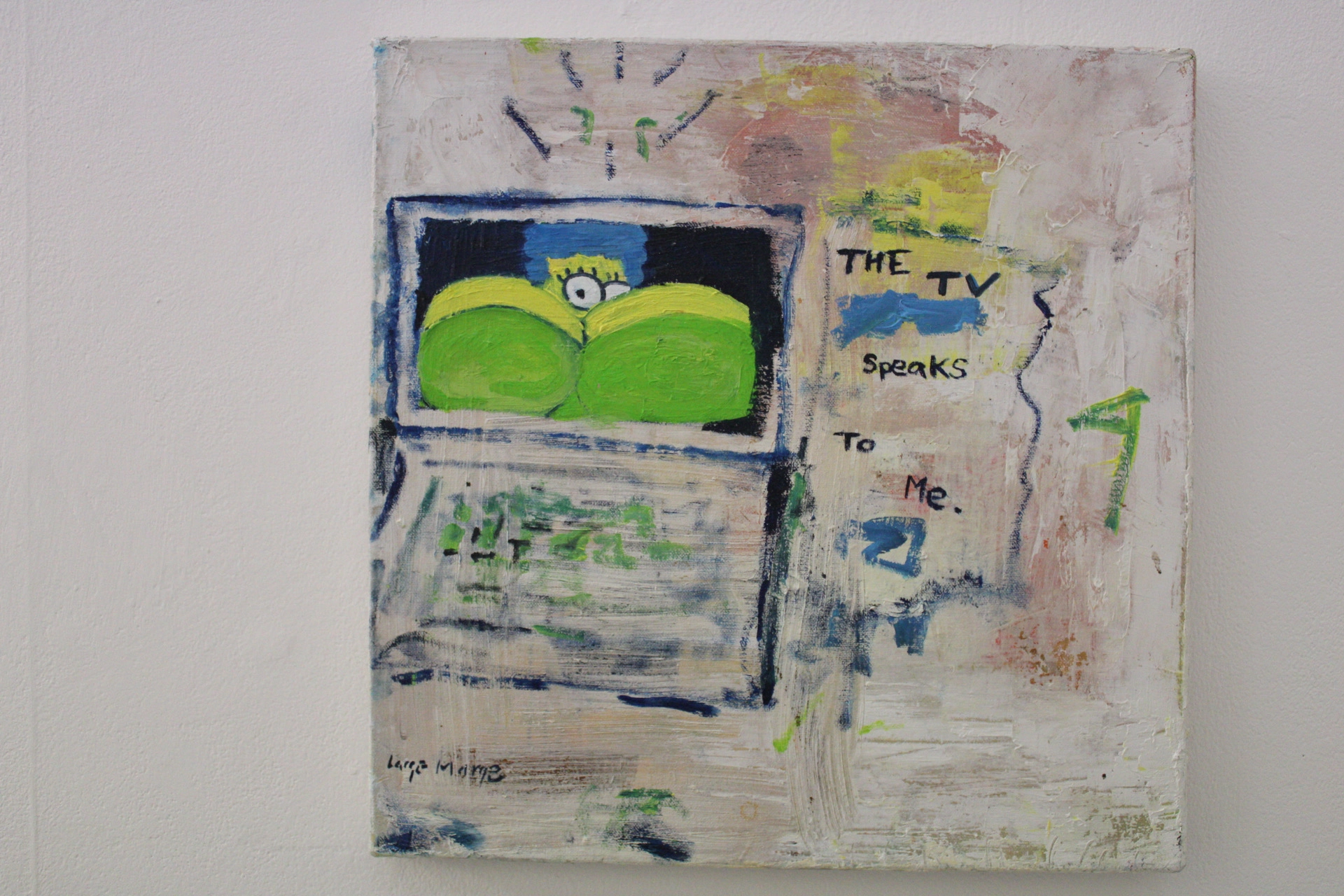-

- Alice Harrold
Alice
Harrold

Macho Man
This piece is a self-portrait of myself as a child, overlaid with lyrics from the song “Macho Man” by the Village People. By pairing it with an image of my younger self, I wanted to explore the complicated and often conflicting relationship I’ve had with gender and queer expression throughout my life. The hyper-masculine energy of the lyrics contrasts sharply with the vulnerability of childhood, creating a tension that mirrors my own inner experience. This work reflects not just nostalgia, but a personal reckoning with identity—how I performed, concealed, or exaggerated aspects of myself to fit into the gender roles I observed around me.
Through this piece, I aim to highlight how pop culture, especially songs like “Macho Man,” can serve as both satire and mirror, and how childhood memories continue to inform our understanding of self and gender.

Attatched
This painting explores the emotional struggle of wanting to detach from someone or something that has become a constant presence in daily life. The feeling is similar to trying to break free from an addiction—an intense internal battle where separation feels like tearing away a part of yourself. Even when you recognize the need to let go, the attachment remains deeply rooted, making the process feel painful, confusing, and overwhelming.
Through this work, I aimed to capture the emotional weight of that detachment and depersonalization —the push and pull between what you know is right for your well-being and what feels familiar or comforting. It reflects the paradox of wanting freedom from something that once brought security or routine but has since become draining or damaging. There is a sense of fragmentation, as if letting go means losing a piece of your identity.

This painting explores the influence of media consumption on individual the individuals sense of self. It reflects not only on the broader societal impact of media but also on my personal experience with it, particularly regarding its effects on my mental health. Much of the media we consume is a mirror of everyday life, shaping and reshaping our perceptions in subtle and overt ways. I often find myself projecting my own emotions and inner struggles onto the content I watch, using it as a lens through which I interpret my own reality.
To highlight this idea, I chose a still from an episode of The Simpsons where Marge Simpson gets breast implants. This particular scene adds a layer of humor while serving as a cultural reference that many viewers recognize. It speaks to how even absurd or exaggerated moments in media can resonate with real-life insecurities or desires. I was watching this episode on my laptop when I realized how often I emotionally connect with characters or scenes, seeing parts of myself in them. Through this 2666, I aim to question the role media plays in shaping identity and to acknowledge how deeply intertwined it has become with personal reflection and understanding.
No students found for the selected year.